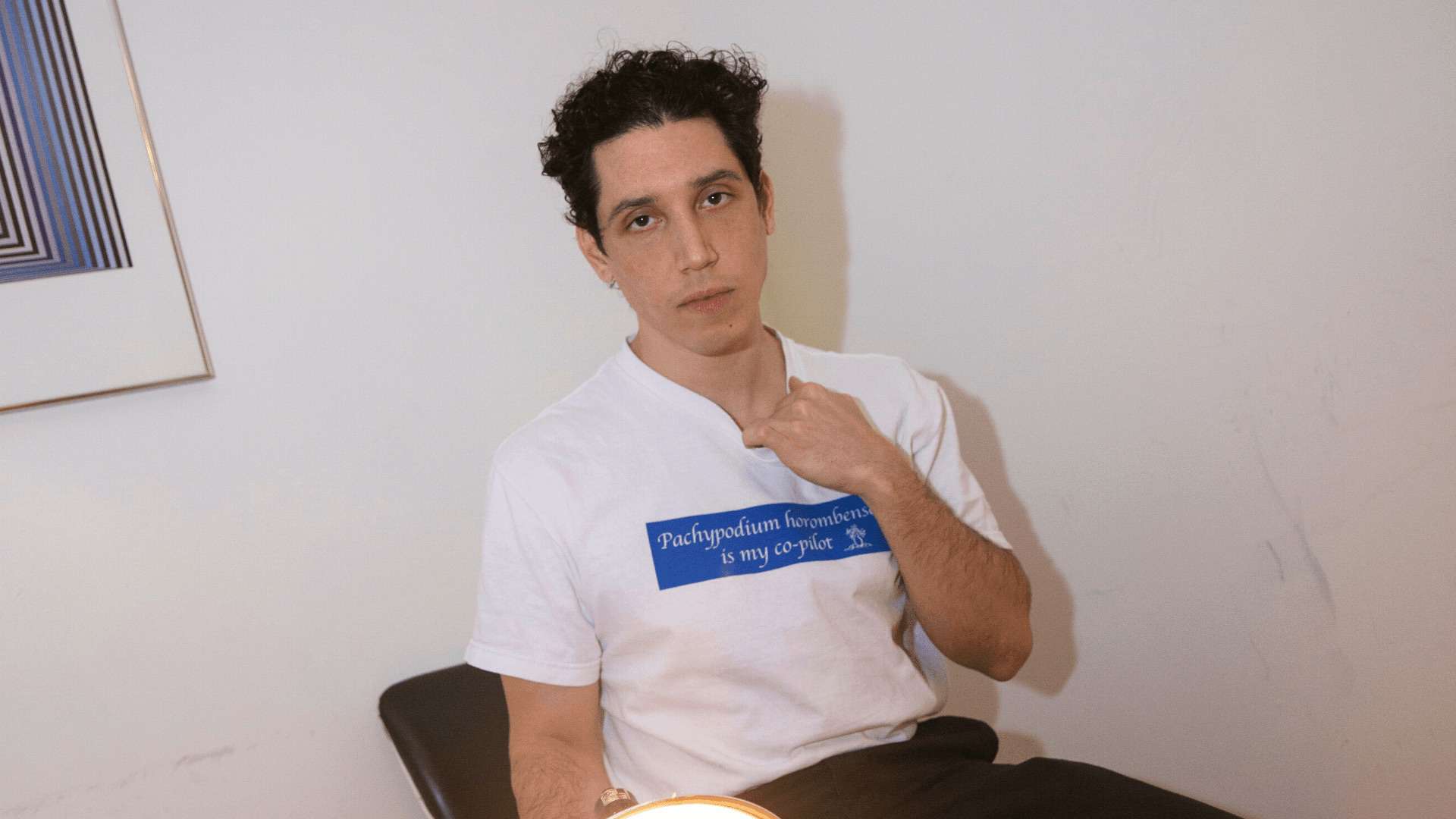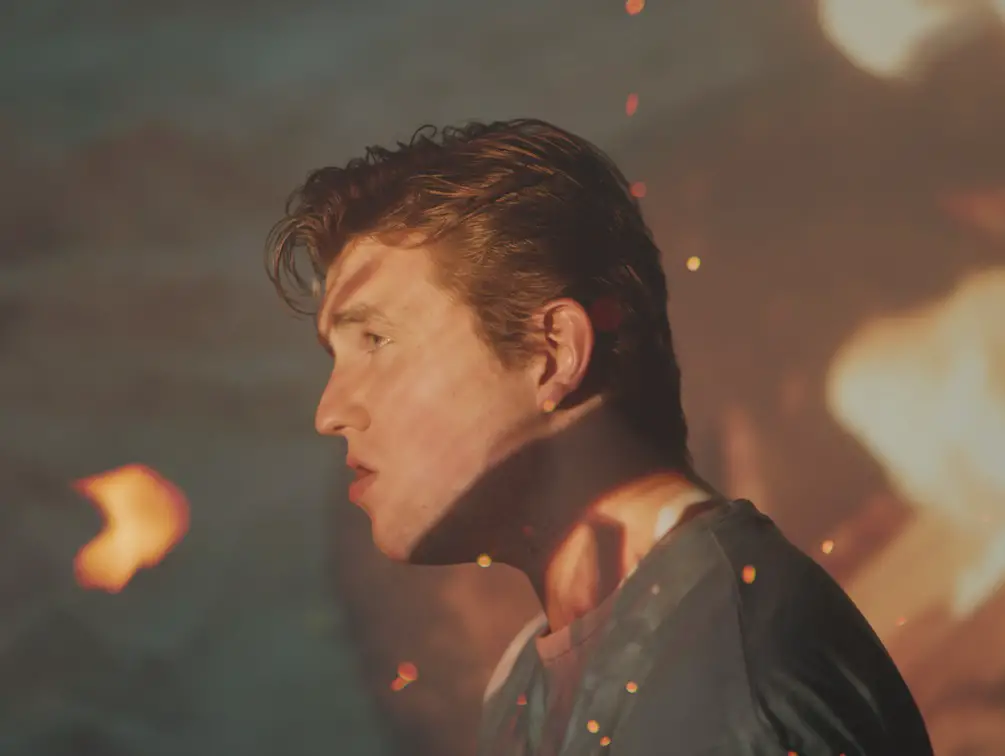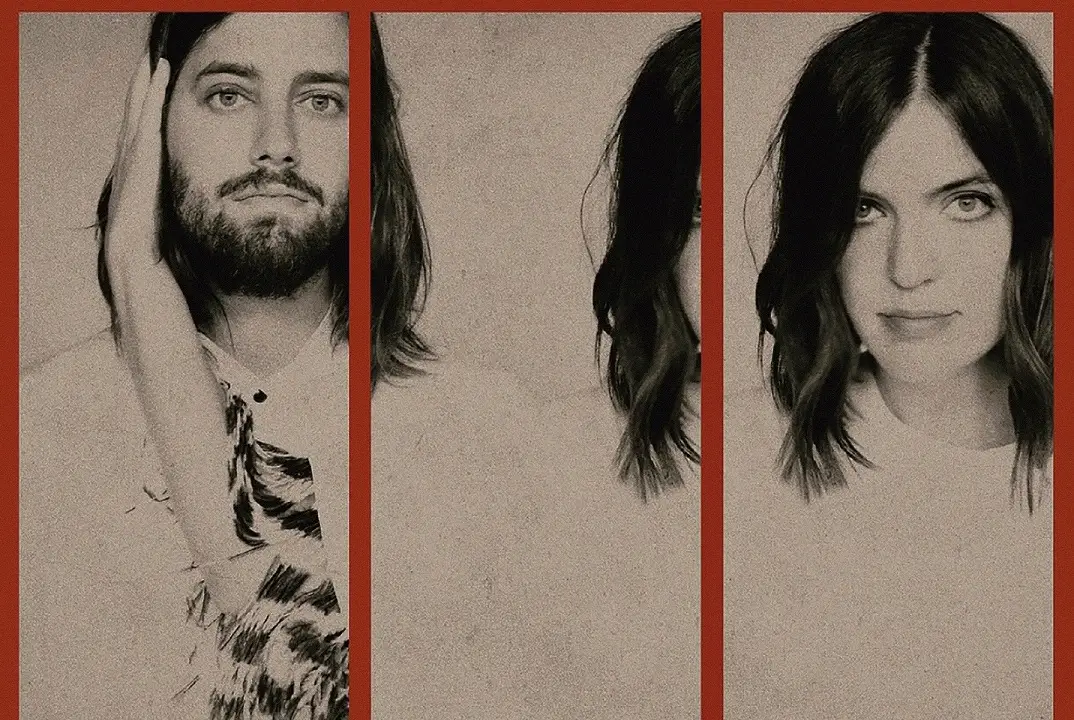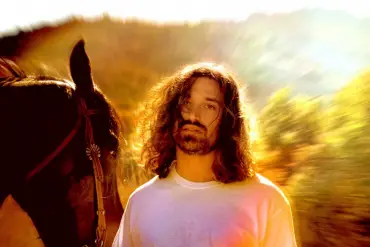“Accidental recording artist” Rob Grant, father of Lana Del Rey, dives into the oceanic depths of his debut album in a candid conversation about piano playing, his unexpected musical journey, and what being “lost at sea” means to him.
Stream: ‘Lost At Sea’ – Rob Grant
As I listen to the music and the underlying story, it’s more about how the world has lost its hope and how people everywhere are struggling to find their way…. This music reflects how we feel in a very troubled world.
Cinematic and intimate, beautiful but melancholic, Lost At Sea is the soundtrack to a movie that doesn’t exist.
Not yet, at least.
Rather than arriving alongside a full-length feature film, Rob Grant’s debut album invites listeners to close their eyes and embark on adventures of their own. “This album is meant to transport you, take you on a voyage, an ambient journey where you just become lost in the sound,” Grant says. “I see so many people, honestly, who are upset and feeling very anxious and, frankly, lost. And my music, I hope, brings peace and calm to a troubled world.”
Let the dulcet tones of a tender piano wash over your ears and through your soul; let your heart fill with the warmth of delicate strings that glisten and glow, ever so gently in the background; and let a soft, familiar female voice take your breath away. Rob Grant is the captain of this fantastic meditative voyage – a pianist and composer, deftly steering his ship through the storm.
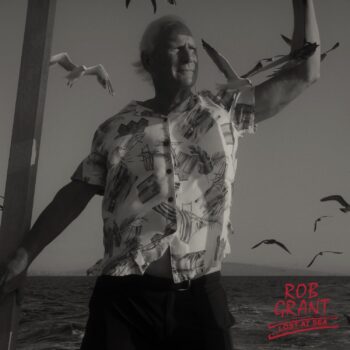
And he is, for all intents and purposes, an accidental recording artist. Up until now, the music world knew him best as a famous father: Grant’s eldest daughter, Lizzy, released her first album as Lana Del Rey in 2010. Over the past thirteen years, she has gone on to become one of the most celebrated and renowned singer/songwriters of her generation, as well as one of the most recognizable voices of her time.
Clearly, talent runs in the family.
Grant made his unofficial “debut” on Lana’s eighth studio album Blue Banisters, playing piano and sharing songwriting credits on the record’s finale “Sweet Carolina” – a sweet, seductive, and utterly enchanting serenade he had improvised at home in Saranac Lake, in upstate New York. So the story goes, Lana heard him playing the piano from a room upstairs and came rushing down; within an hour, they’d finished writing their first song together.
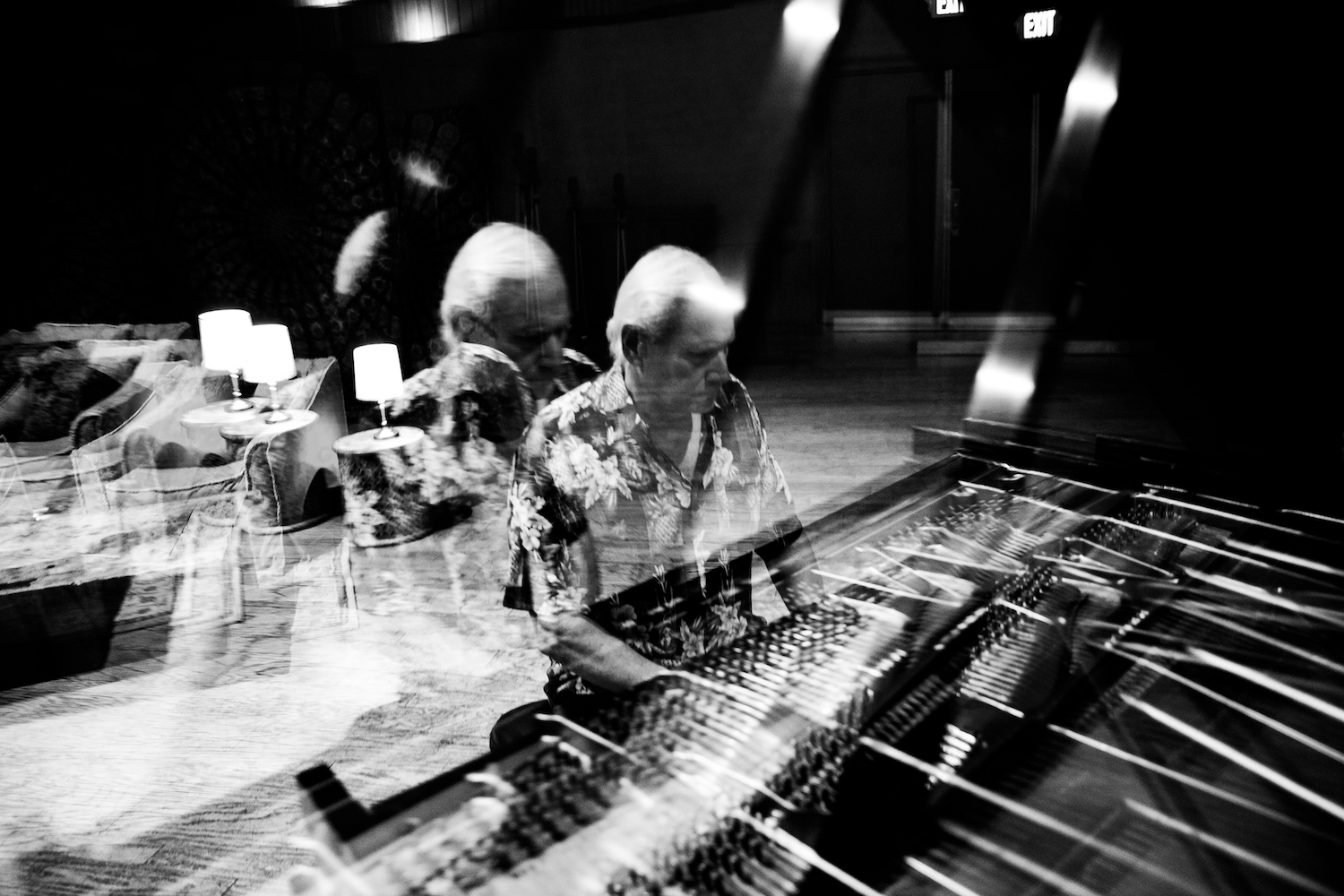
The success of that father-daughter collaboration resulted in Grant sitting in on more of Lana’s recording sessions, which led to more time in front of a piano and a microphone… and during breaks (or whenever she arrived late), he would press “record” and let the music flow.
Like water.
And jazz.
In most instances, what we hear on Lost at Sea is raw improvisation.
“It’s honestly a very mysterious process, which even I have trouble explaining,” he admits. “But if you put me in front of a beautiful piano, say a Steinway or a Yamaha, a grand, I will just start playing for you. And eventually, I will come across a melody which I love, and I’ll begin to build a song around that. And when I played at Conway, I played for about an hour and a half straight. And we took that improv, we took it to London, and I worked with an editor, and we extracted five beautiful songs from that block of improv. That was not me sitting down to play a three-minute piece; that was gold that was extracted from this mind, this hour and a half long continuous set. It’s really fascinating.”
Grant describes Lost At Sea as music for a troubled world. The album’s title speaks to his own visceral feelings around the piano – what it does to him, how it makes him feel.
“Lost At Sea really is meant to be hopefully very soothing music where you can listen to it and also just become lost in your own peaceful thoughts,” he says. “That’s what playing the piano does for me. When I play, I become lost at sea. So it’s a really beautiful concept, which on so many levels describes my music and how I feel, and also the backstory for me because of my deep love for sailing in the ocean. I grew up on the ocean… when I play the piano, I’ll often drift off into this hypnotic state where I feel like I’m on the ocean. I’ve sailed all my life, a big fisherman. And often when I play the piano, these visions of a sparkling distant ocean arise.”
It’s got a lot of meanings, but I’d say the biggest meaning is that, for so many people today, they do feel lost, and I hope my music can help them.
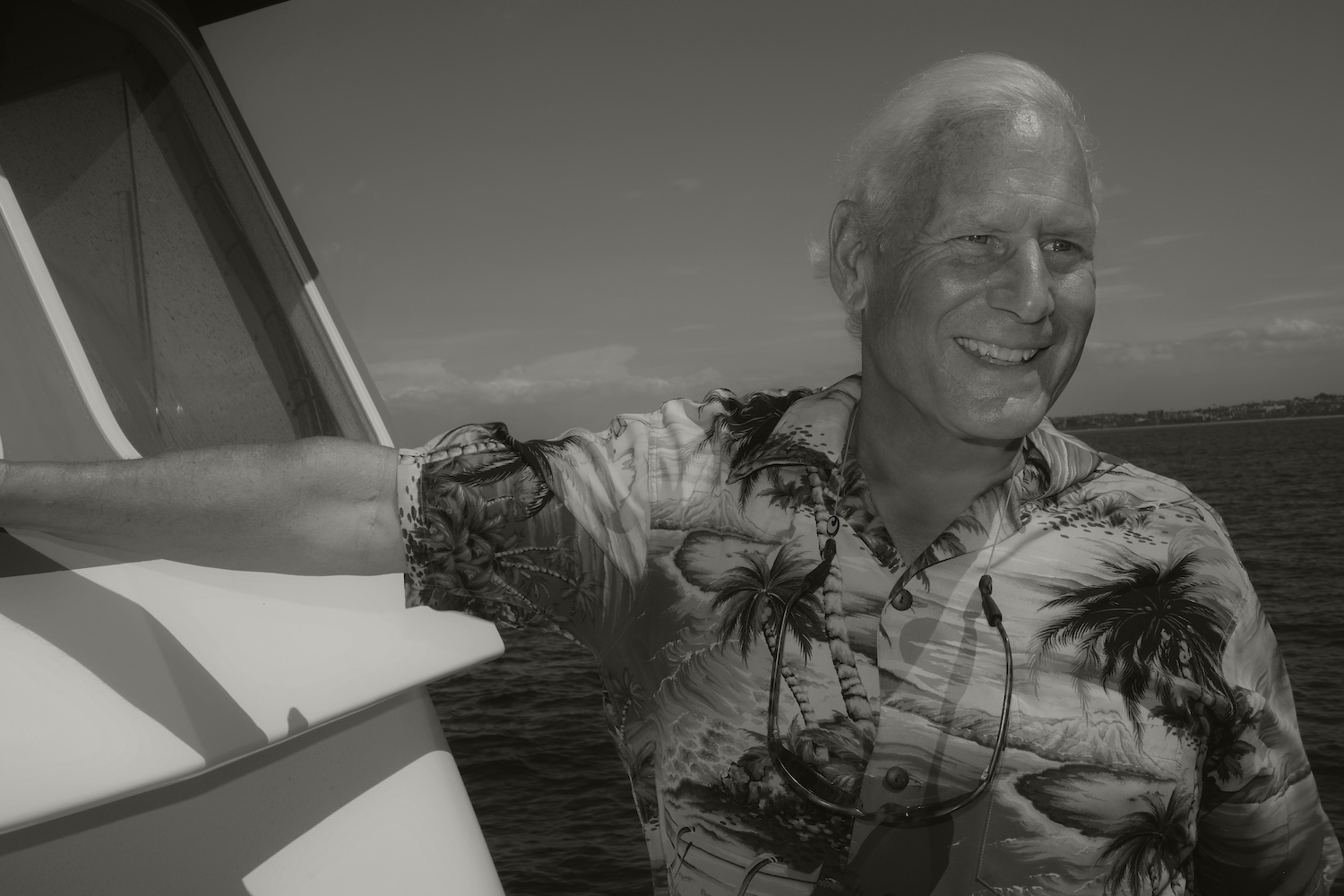
Lost at Sea is by and large an instrumental album reminiscent of contemporaries such as Ólafur Arnalds and Max Richter: Grant’s piano playing is front and center on every song, with production credits from such acclaimed talents as Jack Antonoff, Luke Howard, Laura Sisk, and Zach Dawes.
His famous daughter even joins on two of the album’s tracks, lending her voice to the beautifully breathtaking title song “Lost at Sea” and coming back at the end to once again whisk us away on the soul-stirring album closer, “Hollywood Bowl.”
“‘Lost At Sea’ is a deeply emotional and ethereal song,” Grant says. “It combines the beautiful vocals of Lana Del Rey woven into a hypnotic piano composition. Lana’s voice is haunting and powerful. It moves ghostlike like through the song, like mist over the ocean. The song has a deep message of hope… for all of us who feel lost and disconnected in today’s world. [It’s] the reason I made my album… to share music that can bring some peace and calm to a very anxious world.” The title track’s lyrics speak to a sense of calm within a moment of turbulence and turmoil:
Once you told me
Look for the north star, then you’ll see
Heavenly, I hear
Found my way to the beach
And there were waves over me
I was lost at sea
‘Til you found me, ’til you found me
Ha-ha-ha-ha, happily
Happily, happily
I was found lost at sea…
Happily, happily
I was found lost at sea
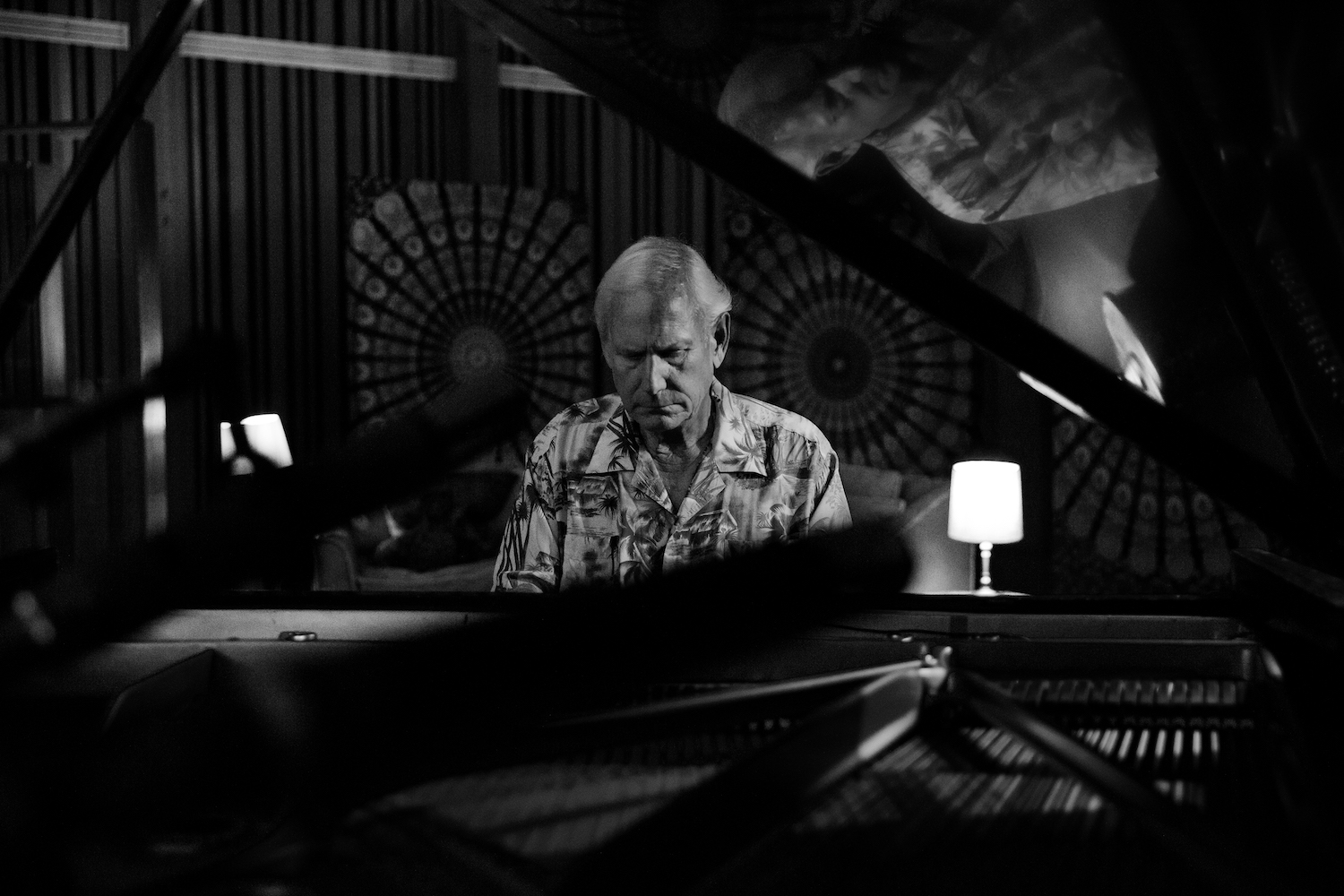
Grant lists “Hollywood Bowl,” the other Lana feature, as one of his personal favorites. “The vocal range that Lana displays is incredible,” he reflects. “The piano begins with a delicate melody and then builds to a beautiful release. Whenever I play this piece, I am happy. It reminds me of my childhood, and how much I loved to swing. How the higher I went, the more I felt like I was flying. It’s a song that is filled with joy.”
A father of three and grandfather of one, Rob Grant is just beginning his musical career at age 70 – and the sky’s the limit. He recently spent three hours recording at the legendary Electric Lady Studios in New York City, and has ideas for a second album already in the works.
“I’ve got beautiful music, which is sitting right now on my phone,” he smiles, a gleaming in his eye. “No one’s heard it, but it’s good.”
Being the father of an international icon certainly got him in the door, and now that he’s here, we hope Rob Grant will stay with us awhile.
“Accidental artist” though he may be, his vision is inspiring and his music deeply moving.
Others seem to agree: Lost at Sea debuted at #1 on the UK Classical Albums chart and #1 on the US Classical Crossover Albums chart, hitting #2 on the US Classical Albums and New Age Albums charts as well.
Atwood Magazine sat down with Grant to discuss his musical vision, collaborating with daughter Lana Del Rey, and what being “lost at sea” means to him. Read more in our interview below, and let yourself get swept away in this record’s wondrous waves and tidal flow.
When I play, it does certainly have a certain melancholy to it, and that is what I love… I would say this album is meant to transport you, take you on a voyage, an ambient journey where you just become lost in the sound.
— —
:: stream/purchase Lost At Sea here ::
:: connect with Rob Grant here ::
A CONVERSATION WITH ROB GRANT
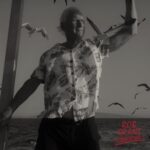
Atwood Magazine: Rob, it is so great to meet you and thank you so much for taking the time today. Where to begin? Lost at Sea inherently feels so cinematic to me; listening to this, I imagine not a record, but really a movie soundtrack. What was the genesis of this album for you?
Rob Grant: Interesting. It kind of goes a little further back, when I wrote a song called “Sweet Carolina” with my daughter Lana. And, I had been playing the piano, and she happened to be upstairs and heard me playing, and she came down and she said, “What is that? What’s that melody?” And I told her I was just doing improv, which is what I normally do. And she said, “Well, play those chords again.” And she began to sing. And then she asked me if I could create a bridge, which I did. And then within, really, I’d say 40 or 50 minutes, we’d written “Sweet Carolina,” and that’s the final track on her album, Blue Banisters. So from there, I would go into recording sessions with her at Conway Studios in LA and Henson. And typically, she always arrives late. Often, you’ve got these engineers and producers who are hanging around. I’ll go in early, swoop in, and I’ll tell the guys to just hit record. And I did that over a series of several weeks, and began to lay down all of these very interesting songs. And I didn’t really have any intent at the time of creating an album. I just, often, I just play for myself. So, I sent five tracks on to Ben Mawson at Tap Management in London. And Ben wrote me back right away, and he said, “Holy smokes, I love this. I think I can get you a record deal.” And I was unsure.
And then two weeks later, Ben called me and he said, “We just got you a big deal with Decca.” So that began the saga. And, I flew to London, I met with Tom Lewis, the CEO, Rachel Holmberg, and a bunch of others, and they began to lay out their idea of what they hoped the album would sound like. And I had begun to have this narrative in my mind that it would be very oceanic, because my background and my love for the ocean is very powerful. And when I play the piano, I’ll often drift off into this hypnotic state where I feel like I’m on the ocean. I’ve sailed all my life, a big fisherman. And often when I play the piano, these visions of a sparkling distant ocean arise. So, I laid that narrative out for Decca. They loved it. And they said, “Well, we’re gonna need a minimum of at least 14 tracks.”
Now, mind you, I’ve never had a piano lesson. I can’t read sheet music. All of a sudden I’m talking to Decca about creating an album. It was very funny, to be honest. But to their credit, they loved the music, they saw the potential. And they were very supportive as I laid out this narrative. And I also wrote about a two or three-page narrative for them, describing this ambient voyage that starts with “Moon Rise Over The Ocean” and then moves gently through all of those piano pieces. So that’s the background.
“Lost At Sea: Music For A Troubled World“
As I listen to the music and the underlying story,
it’s more about how the world has lost its hope
and how people everywhere are struggling to find their way.
The music is beautiful but melancholy.
The metaphor of being lost at sea is how we all feel.
The story begins with a soothing piano piece…
a deep yearning for something that has been lost
and continues with gentle, calming piano pieces
which are meant to be healing and soothing.
At the end of the album there is finally a sense of hope…
a light at the end of the tunnel.
This music reflects how we feel in a very troubled world.
It is beautiful, but bittersweet.
– Rob Grant
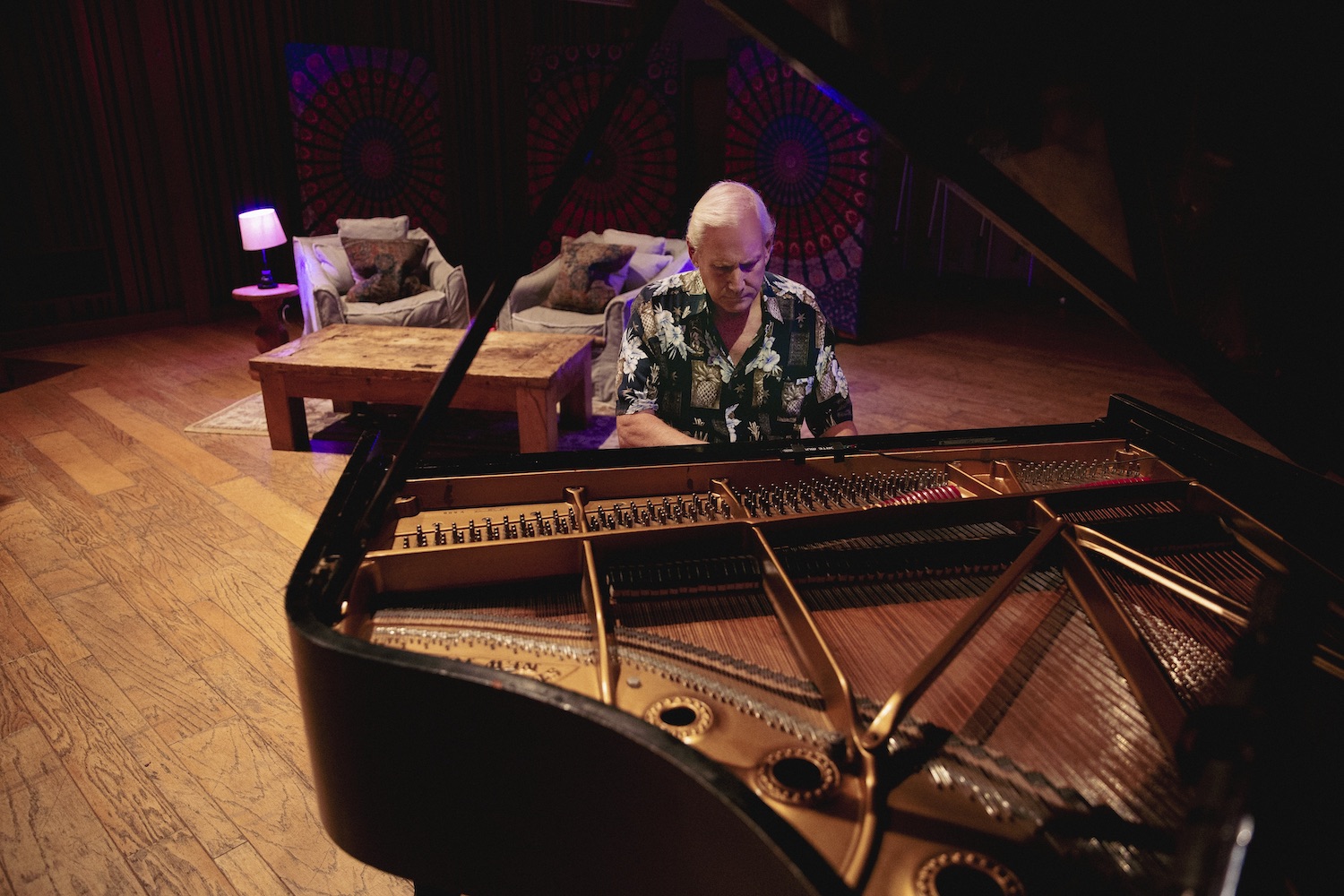
Was it a challenge to re-record anything, or are a lot of these musical ideas and motifs that you came up with spur of the moment – and to make them again would be a matter of listening back and finding the notes again?
Rob Grant: No, it’s a great question because the way I play, I play entirely by ear, and it’s very intuitive. What I’ll do when I’m playing for myself, I’ll prop my phone up on the piano, and when I play a melody that I think has got potential, I’ll record it on my phone. And then I’ll bring the phone into a recording studio, set it up on their piano, and I’ll cue myself in. And it takes a while for me to recapture that same tune. But I can do it. And that’s how I worked with Jack Antonoff and Laura Sisk at Henson. And right away when Jack heard my music, he was just blown away. And Jack, of course, is a great pianist. And he would just say to me, “Rob, keep playing, keep playing.” And they would just record everything. And the very interesting thing about the way I play is that, it’s not deliberate, it’s not in any way conscious, I just let it flow.
And it’s honestly a very mysterious process, which even I have trouble explaining. But if you put me in front of a beautiful piano, say a Steinway or a Yamaha, a Grand, I will just start playing for you. And eventually, I will come across a melody which I love, and I’ll begin to build a song around that. And when I played at Conway, I played for about an hour and a half straight. And we took that improv, we took it to London, and I worked with an editor, and we extracted five beautiful songs from that block of improv. That was not me sitting down to play a three-minute piece; that was gold that was extracted from this mind, this hour and a half long continuous set. It’s really fascinating.
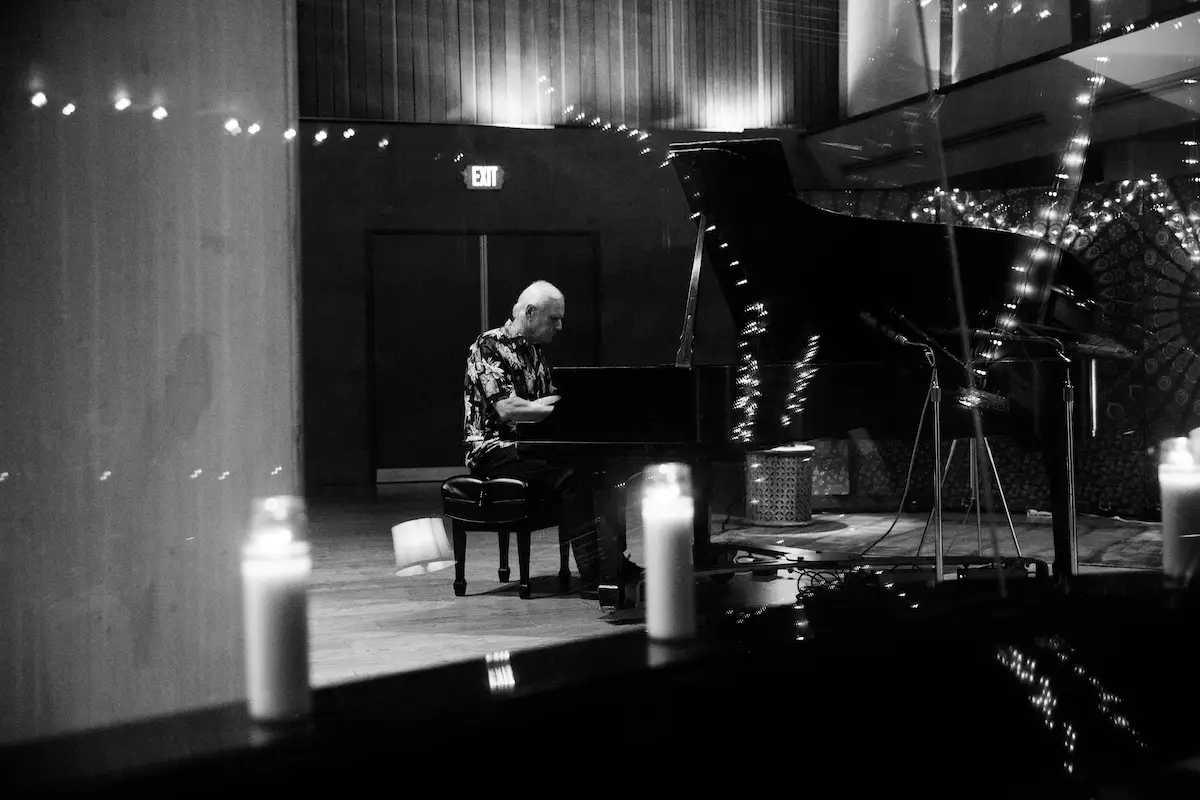
It feels and sounds quite neoclassical, but it's really closer to jazz in terms of how we are tuning in and tuning out of a session that existed – and we’ve just been given the opportunity to have this little bit of insight to hear a small segment of the overall experience.
Rob Grant: Yeah. It’s funny because I’ve also written three pop songs. So, depending on what the mission statement is, I can adapt. And so when I’m playing with my daughter, I know the kind of music she loves. And I’ll just give you an example. We had written a beautiful song called “Sunshine,” and that was supposed to be on my album. I later learned she thought it was supposed to be on her album, on Tunnel. And that’s a unique problem. And so in the middle of this, we realized that some of the chords were a little too similar to Bob Dylan’s “Knockin’ on Heaven’s Door,” which apparently happens quite a bit. Apparently, that chord progression is a very common one. So, we sent that to a musicologist in the UK, he confirmed, “Yeah, you’ve gotta change up that chord structure,” which I had done. But by then, Lana had decided that she was going to move on emotionally from that song. Of course, that left me hanging, because I knew I had to write now another pop song. So, I’m playing away one night and I come across this beautiful chord progression, and right away I knew she was gonna love it.
And I called her, and I went over to her house and I said, “You’ve gotta hear this.” And I sat down and played “Hollywood Bowl.” And she instantly loved the chords, and right away began to sing. And she kind of writes lyrics the way I play the piano. It’s all very spontaneous. And she’ll write lyrics on the fly. And she asked me if I could create a bridge for that particular song, which I did. And while she was looking around her living room, she saw this beautiful picture of the Hollywood Bowl, where she had performed, and that triggered this whole beautiful lyric which became, of course, the final track, “Hollywood Bowl”. Both she and I write almost spontaneously. And I’ve been with her when, if she hears something that triggers a lyric in her mind, she’ll just start singing. That’s pretty much how all of our music has been written. If she hears something that I’m playing on the piano, she’ll kind of yell down to me, “What is that?” And she’ll come down and we’ll play it again and we’ll build an actual song around that. We’ve written four pop songs so far, with that method. [chuckle]
That's how these father-daughter collaborations come to be. That's a lovely way of coming together. Do you mind sharing a little bit more about the song, “Lost at Sea”? How did that song come about, and what does it mean to you?
Rob Grant: The title of the album and that song, I think, is multi-layered. When I look at the world today, I see so many people, honestly, who are upset and feeling very anxious and, frankly, lost. And my music, I hope, brings peace and calm to a troubled world. So, in that sense, “Lost At Sea” really refers to where we’re at culturally. Politically, you can see how divided our country is. The same is true in the UK. We’ve got so many problems now with climate change, extreme weather, you’ve got economic problems where young kids today can’t afford a home, none of them can. It just seems like we’ve reached this convergence where we’ve got so many problems.
And so, Lost At Sea really is meant to be hopefully very soothing music where you can listen to it and also just become lost in your own peaceful thoughts. And that’s what playing the piano does for me. When I play, I become lost at sea. So it’s a really beautiful concept, which on so many levels describes my music and how I feel, and also the backstory for me because of my deep love for sailing in the ocean. I grew up on the ocean. So it’s got a lot of meanings, but I’d say the biggest meaning is that, for so many people today, they do feel lost, and I hope my music can help them.
You mentioned earlier that you don't read sheet music, you're not trained in any way. I have to imagine there's been music in your home for quite some time. But when did you sit down at the piano first, and how long have you been playing now?
Rob Grant: Yeah, that’s a great question. When I think back, I remember in Barrington, Rhode Island, we had a Steinway, and in fact, it’s the same Steinway, it’s a baby Grand that I had rebuilt and moved into my office now in Upstate New York in Saranac Lake. We lived in Lake Placid, and then after the kids had all grown up and left, we sold the house. And then, we’ve got a place in Saranac Lake. Anyway, that same Steinway, which used to sit in our family home, I had rebuilt and moved into my office. Anyway, going back to when I first played, that takes me way back to really when I was a teenager.
And oddly enough, I remember, it’s a funny story, which I haven’t thought of in a long time, but I was trying to impress a girlfriend, and she asked me, “Do you play the piano?” And I thought, “Huh.” Well, so I sat down and I just began to play, and to my amazement and hers, I actually was putting together these beautiful chords. And that’s back when I was 14 years old. And right away, I realized I had this love for the piano. Now, I never took it seriously, but I always loved to play. And I would often play at parties, privately, and people would ask me to play. And so, I’d sit down and just do improv, but never took it seriously. And certainly never thought way back then that one day I’d be doing an album and signed with Decca.
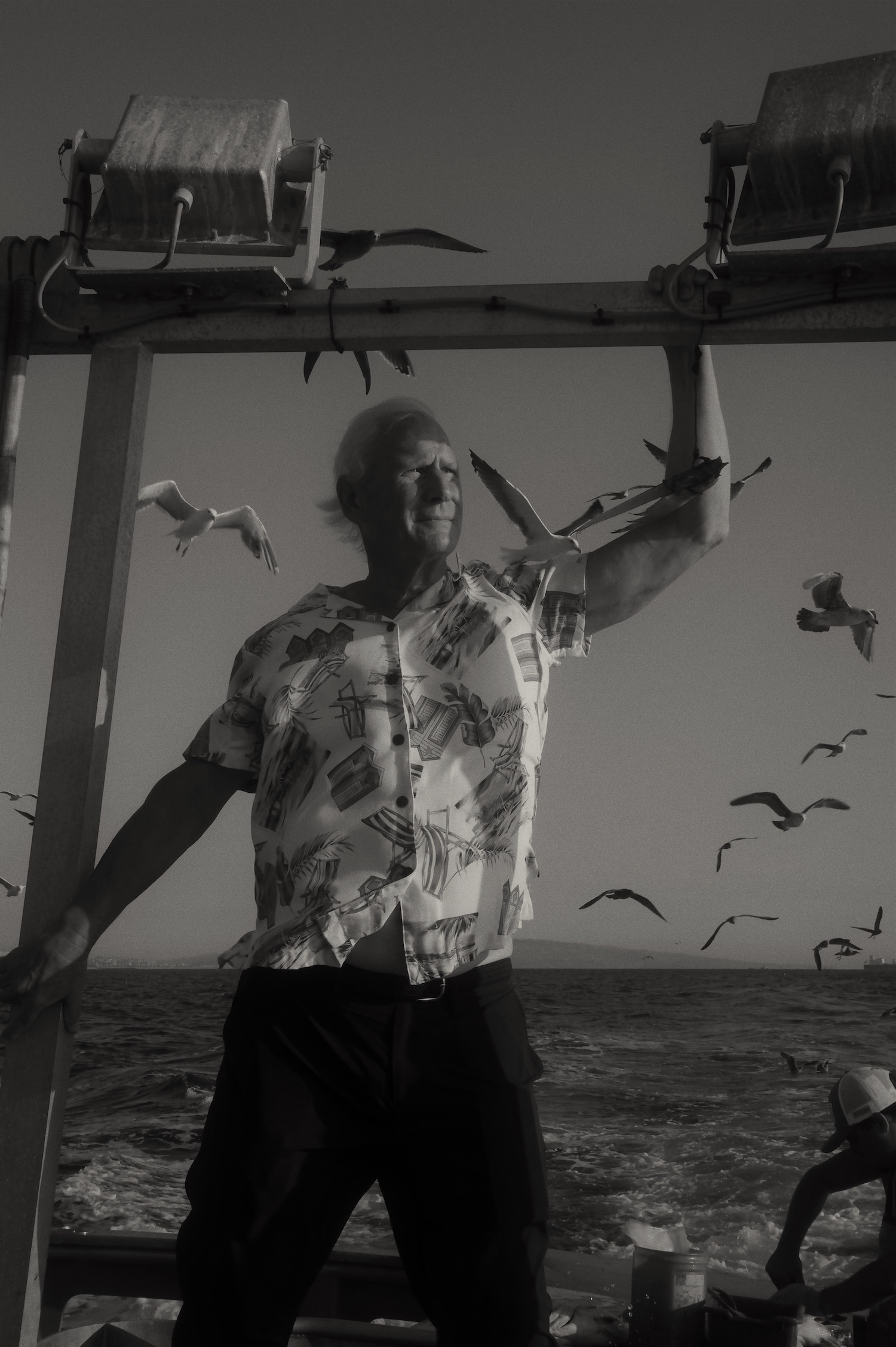
Was it always brooding music, the way this album came about?
Rob Grant: I’d say with this album, it’s meant to be very ambient – I’d almost call it melancholy. It’s got a sad edge to it. And frankly, my daughter is the same way, a lot of her songs. Obviously we share the same DNA, the same sensibility. When I play, it does certainly have a certain melancholy to it, and that is what I love. I love the old Irish songs, which to me all used to seem very sad.
Now, mind you, I can write a happy song. I’d say “Hollywood Bowl” certainly is a happy tune. But generally, I would say this album is meant to transport you, take you on a voyage, an ambient journey where you just become lost in the sound. And I worked with Luke Howard, who’s based in Melbourne in Australia, and he’s a great producer. And he and I would communicate via text and sometimes by calls. And he was very intuitive, the way he could take my songs and then add depth to them, whether it was strings or horns. And I was really impressed with his intuitions. And he did a wonderful job. Now, mind you, I’ve yet to meet Luke in-person. Isn’t that something?
He’s a great guy. And of course, I sent him a piano piece that was meant to be a very short kind of interlude, about a minute and a half. And about a week later, he sent me back this six and a half minute mysterious ambient piece called, I called it “The Mermaids Lullaby.” And what he had done was he’d taken my piano and he had slowed it down by 4x, and then he had begun to layer in all of these sound effects, and he created this beautiful, mysterious piece. And when I got it and I played it, I thought, “Wow.” That’s fascinating to be able to take a traditional piano piece and transform it into this mysterious music. And right away I envisioned being under the sea. I could see the kelp swaying and just the movement of the tides. And, so I called it “The Mermaids Lullaby.”
That's why I said this music feels so cinematic to me – the record reminded me of soundtracks like The Shape of Water and Phantom Thread: So much of what these movies gave to their audience was defined by their music.
Now, clearly you have set out from the get-go to distinguish yourself not as Lana Del Rey's father, but as Rob Grant, composer and artist. What do you hope listeners take away from your album and what have you taken away from creating it and now putting it out?
Rob Grant: I think the music does the same thing for me that hopefully it does for anyone who listens to it, which is, it’s meant to be very calming, very soothing. It’s meant to take you on this beautiful ambient journey, which, I’m just thrilled to be able to share with the world.
The album itself really is meant to be my gift to the world, and I hope that people can enjoy it and find peace. And I know I’ve talked to so many people, I did a three-hour signing in London, where people would bring the vinyl in. That was at Rough Trade. And I heard from all of these fans who told me what the music meant to them. And a lot of them were young. These were kids. And I just loved it because, here they were telling me their favorite songs and what the songs did for them. Man, I found that to be fascinating, and very, really wonderful, for a guy like me. So cool.
— —
:: stream/purchase Lost At Sea here ::
:: connect with Rob Grant here ::
— — — —

Connect to Rob Grant on
Facebook, Twitter, TikTok, Instagram
Discover new music on Atwood Magazine
© Chuck Grant
:: Stream Rob Grant ::


 © Chuck Grant
© Chuck Grant

